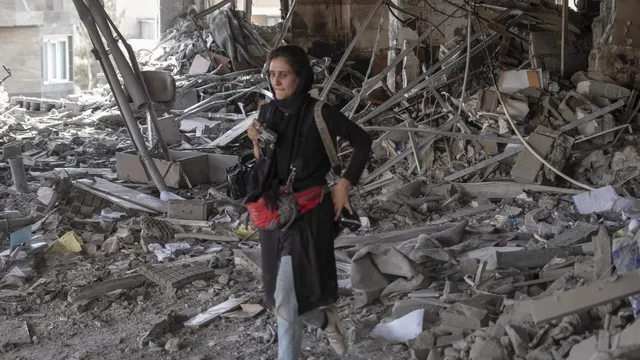
Israel and Iran both accused of propaganda in ongoing conflict
2025-06-27 13:52- Intelligence analysts discuss the propaganda efforts from both Iran and Israel during their recent military engagements.
- Russian opposition to Iran's nuclear weapons ambitions influences regional security dynamics.
- The complexities of the conflict highlight the need for understanding intelligence operations and their broader implications.
Express your sentiment!
Insights
In recent months, there have been significant military engagements involving Iran and Israel, highlighting the deep-seated rivalry between these nations. Analysts from intelligence backgrounds, such as those affiliated with British MI5 and MI6, have discussed the implications of the conflict, suggesting that while operations against Iran were justified to prevent nuclear armament, the outcomes are often layered with misinformation and propaganda from all parties involved. Israeli operations were said to have penetrated deep into Iranian connections, relying on significant collaborations with locals displeased with the Iranian regime. While Israel aimed to neutralize the nuclear threat, conversations reflected a complex reality influenced by broader geopolitical dynamics involving Russia and the United States. A retired Israeli intelligence officer noted that Russia, under Putin's leadership, has vested interests in preventing the proliferation of nuclear capabilities among Islamic nations, stating that they do not wish to see more countries of that nature obtaining nuclear arms. Both Iran and Israel engaged in strategic maneuvers, which have often been misunderstood or misrepresented in media narratives. The retrospective view of these operations suggests that despite clear objectives, the truth of their effectiveness and motivations remains obscured, with each side promoting its narrative. Consequently, the lack of clarity and transparency feeds into a cycle of distrust. The analysis concluded with a cautionary note regarding the evolving situation, suggesting that Israel's strategies against Iran would continue, enriched by the intelligence it has amassed over the years. The operational landscape will be critical in shaping the future interactions and actions taken by various stakeholders, including those willing to collaborate with Israeli interests for regime change in Iran. As the geopolitical chess game unfolds, the conversations around media portrayals and propaganda will undoubtedly continue to evolve, impacting the assessment of military actions taken over the past years. In summary, the intricacies of this conflict are enveloped in layers of deception, with each player attempting to control the narrative to preserve their political stance and objectives. The war's aftermath highlights the critical need for understanding the underlying motivations that drive the strategies of each nation, as well as the broader implications on regional stability.